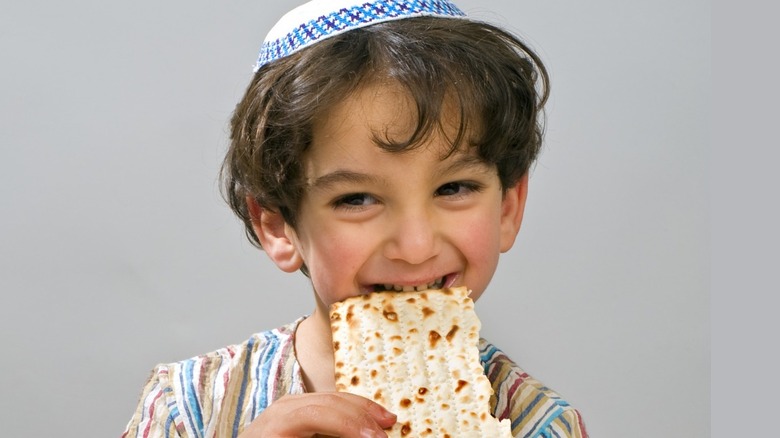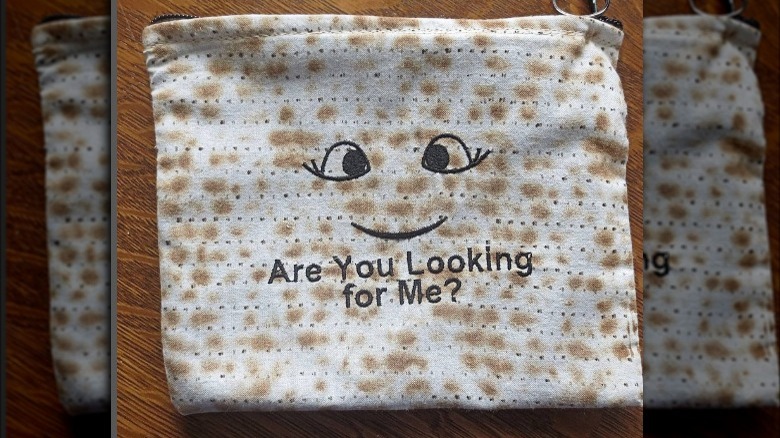The Real Reason Kids Are Encouraged To Steal On Passover
The Passover Seder may look like a holiday meal, but the experience is more like an immersive dinner theater. The Seder begins and ends with storytelling, with audience participation heartily encouraged. The call to participate arises out of a dual imperative. The first is that Jewish law commands that the story of the Jewish people's exodus from enslavement in ancient Egypt be told in exacting but exquisite sensory detail — with the goal being that the story becomes one that everyone at the table will feel that they, themselves, have lived through.
The second is that this storytelling process is long, spanning centuries if not millennia. In short, it can take hours. And what better way to keep everyone engaged than through active participation? That goes double for the children at the table, who are reminded throughout the Seder that they are the trustees of the Passover story and its future retellings.
This brings us to the iconic moment in every Seder when the designated lead storyteller places, with exaggerated fanfare, a piece of matzah in decorative wrap, announcing something to the effect of, "Hey kids, this matzah is super important, so don't go stealing it, but if you do, I'm willing to negotiate for its safe return" (via Vox and PJ Library).
Yes, you read that right. The kids at the Seder table are not only encouraged to steal this piece of matzah, but also to use it as blackmail to get a gift of some kind.
Stealing is part of the fun on Passover
Early in the Seder, the designated leader customarily hides a piece of matzah, or unleavened bread, and goads the children at the table into stealing it — with the promise of a reward for its return (per Chabad). This may seem odd given that stealing is against Jewish law, even as a joke (via OU Torah). However, this custom that encourages kids to steal on Passover is actually attributed to the following statement from Jewish law itself: "We snatch matzahs on the night of Passover in order that the children should not fall asleep." To put it in simpler terms, many Jewish theologians believe this custom is meant to encourage the kids at the table to actively involve themselves in the Seder's proceedings.
Some have criticized the custom as problematic on such grounds that it might normalize stealing, or that it could unwittingly reinforce negative stereotypes of the Jewish people (per the ADL and Geeky Captain). Nevertheless, the stealing and the giving back of the "afikomen," as this piece of matzah is called, also delivers, via symbolism, some of Passover's most important lessons. The broadest and perhaps most significant of these is that liberation from one's bonds is always possible. Further, the invitation to bargain with adults represents the empowerment of the powerlessness, according to Rabbi Andrew Warmflash (via Long Island Herald), another inspiring Passover theme.

